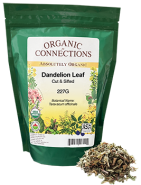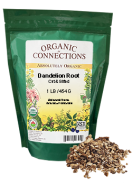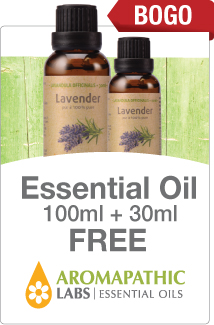Dandelion
Dandelion's Many Health Benefits Explained
The Dandelion is a ubiquitous and often underappreciated herbaceous plant that has thrived in various parts of the world for centuries. The dandelion (Taraxacum officinale) is a member of the Asteraceae family, which includes dahlias, thistle, ragweed, lettuce, artichokes and sunflowers. Though often dismissed as a common weed, dandelion possesses many impressive medicinal properties and health benefits. Read more >-
 To many, Dandelion is known as a pesky weed, but it’s also an herb that’s often used in Traditional Chinese Medicine as a digestive bitter, thanks to its active compound, sesquiterpene lactones. While the flower or root of the plant can be used, Organic Connections harvests the leaves because that’s where the bitter active components r...To many, Dandelion is known as a pesky weed, but it’s also an herb that’s often used in Traditional Chinese Medicine as a digestive bitter, thanks to its active compound, sesquiterpene lactones. While the flower or root of the plant can be used, Organic Connections harvests the leaves because that’s where the bitter active components reside, which ensures you’re getting a high-quality herb that makes a bitter, earthy tasting tea. This dandelion leaf is certified organic and can be used in combination with other herbs, such as peppermint, or alone as a digestif. [POWDER]+ Earn 22 Reward Points
To many, Dandelion is known as a pesky weed, but it’s also an herb that’s often used in Traditional Chinese Medicine as a digestive bitter, thanks to its active compound, sesquiterpene lactones. While the flower or root of the plant can be used, Organic Connections harvests the leaves because that’s where the bitter active components r...To many, Dandelion is known as a pesky weed, but it’s also an herb that’s often used in Traditional Chinese Medicine as a digestive bitter, thanks to its active compound, sesquiterpene lactones. While the flower or root of the plant can be used, Organic Connections harvests the leaves because that’s where the bitter active components reside, which ensures you’re getting a high-quality herb that makes a bitter, earthy tasting tea. This dandelion leaf is certified organic and can be used in combination with other herbs, such as peppermint, or alone as a digestif. [POWDER]+ Earn 22 Reward PointsSale: $22.99
Reg.: $27.81 (Save $4.82)
In Stock -
 To many, Dandelion is known as a pesky weed, but it’s also an herb that’s often used in Traditional Chinese Medicine as a digestive bitter, thanks to its active compound, sesquiterpene lactones. While the flower or root of the plant can be used, Organic Connections harvests the root because that’s where the bitter act...To many, Dandelion is known as a pesky weed, but it’s also an herb that’s often used in Traditional Chinese Medicine as a digestive bitter, thanks to its active compound, sesquiterpene lactones. While the flower or root of the plant can be used, Organic Connections harvests the root because that’s where the bitter active components reside, which ensures you’re getting a high-quality herb that makes a bitter, earthy tasting tea. This dandelion root is certified organic and can be used in combination with other herbs, such as peppermint, or alone as a digestif. [CUT & SIFTED]+ Earn 31 Reward Points
To many, Dandelion is known as a pesky weed, but it’s also an herb that’s often used in Traditional Chinese Medicine as a digestive bitter, thanks to its active compound, sesquiterpene lactones. While the flower or root of the plant can be used, Organic Connections harvests the root because that’s where the bitter act...To many, Dandelion is known as a pesky weed, but it’s also an herb that’s often used in Traditional Chinese Medicine as a digestive bitter, thanks to its active compound, sesquiterpene lactones. While the flower or root of the plant can be used, Organic Connections harvests the root because that’s where the bitter active components reside, which ensures you’re getting a high-quality herb that makes a bitter, earthy tasting tea. This dandelion root is certified organic and can be used in combination with other herbs, such as peppermint, or alone as a digestif. [CUT & SIFTED]+ Earn 31 Reward PointsSale: $31.99
Reg.: $41.35 (Save $9.36)
In Stock
Health Benefits of Dandelion
The dandelion is a ubiquitous and often underappreciated herbaceous plant that has thrived in various parts of the world for centuries. The dandelion (Taraxacum officinale) is a member of the Asteraceae family, which includes dahlias, thistle, ragweed, lettuce, artichokes and sunflowers. Though often dismissed as a common weed, dandelion possesses many impressive medicinal properties and health benefits.
Originally native to specific regions in Europe and Asia, the dandelion has since become a cosmopolitan species, naturalized in almost every corner of the globe, earning it a place in the diverse ecosystems of North and South America, Africa, Australia, and beyond. Its tenacity and adaptability allow it to flourish in a broad range of environmental conditions, from lush meadows to urban sidewalks.
Its leaves are rich in vitamins, particularly vitamins A and C, making it a potent immune booster and antioxidant. Additionally, dandelion is an excellent source of vitamin K, so it can help build strong bones and increase bone density. It also has robust diuretic properties, helping flush excess bodily fluids and support kidney health.
Moreover, dandelion is known for its ability to lower blood pressure and cholesterol levels, making it highly beneficial to heart health. The root of the plant has also been extensively used in traditional medicine to aid digestion and support liver function, thanks to its ability to stimulate bile production. Last but not least, the dandelion's anti-inflammatory properties make it ideally suited to relieving arthritis pain (and many other pain conditions).
Health Benefits of Dandelion Tea & Supplements
- Anti-inflammatory, Antioxidant, Analgesic, & Diuretic
- Boosts Immune Function
- Helps Reduce cholesterol And High Blood Pressure
- Promotes Liver And Kidney Health
- Rich In Inulin – Natural Prebiotic Fibre
- Strengthens Bones
Shopping For Quality Dandelion Supplements
Dandelions are available in various forms for culinary and medicinal applications. Fresh dandelion greens offer a vibrant and slightly bitter addition to salads, sautés, or smoothies. Fresh dandelion leaves can be washed and incorporated into salads, cooked, or wilted like spinach. Dandelion roots are also often dried, roasted, and ground to create a rich, earthy flavour for a dandelion coffee substitute.
For those seeking the benefits of dandelion in a more concentrated form, supplements like dandelion root capsules, liquid extracts, and teas are readily available in health food stores and herb shops, offering the convenience of precise dosing and easy administration.
While there is no established recommended dose range for dandelion root, dried or powdered supplements typically provide between 500 and 1,500 mg per serving. A daily dose of four to 10 g is generally recommended for those who prefer brewing fresh leaves into tea. If opting for dandelion tincture or extract, a standard dose is usually between 0.5 to one teaspoon or 2 to 5 mL, three times daily.
Side Effects & Cautions of Dandelion
Dandelion offers several impressive health benefits and is generally well tolerated by most people; however, some people may experience allergic reactions, primarily in the form of skin rashes or digestive issues. Moreover, dandelions may interact with medications such as blood thinners or diuretics. If you take either of these medications, speak to your healthcare practitioner before adding dandelion to your daily regimen.
Those with known allergies to plants in the Asteraceae family, like ragweed or marigolds, should exercise caution, as cross-reactivity is possible. Individuals with gallbladder issues should also know that dandelion can increase bile production.
Back to Top ↑





















